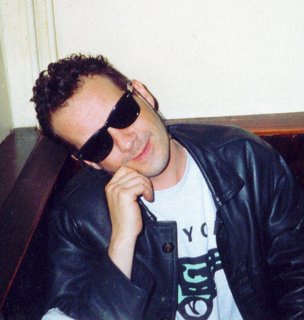Like Bock I too have found myself rendered increasingly inarticulate by the revelations emerging since the publication of the Commission report.
The following clip from Questions and Answers conveys both the trauma and the sickening lack of compassion of both church and state for the victims of this regime. It also highlights the shameless way in which the Irish state continued to foot the bill and prolong the evil that was done in protecting child-molesters and abusers from both the consequences and the costs of their behaviour. Noel Dempsey's expression (or lack of it) speaks volumes in this regard.
In explaining the behaviour of both clerics and politicians, we need to look into a political, cultural and economic project that was instituted in the mid-19th Century and realised in 1922. It is implicit in the work alluded to by writers such as Tom Inglis in Moral Monopoly and Jim Mac Laughlin in various papers over the last decade: Namely, the idea that nation-building in an Irish context required a Khmer Rouge-like policy of weeding out the deviant and unfit to produce a population fit to live up to the patriotic ideals of the native bourgeoisie from which the religious orders were largely recruited. What emigration couldn't remove amongst the lower orders, the Church would correct and what it couldn't correct it would quarantine in National Schools and Magdalene Homes.
What is in danger of being overlooked is that most of the victims of these Irish gulags were only guilty of being judged socially or economically inadequate rather than criminal in any real sense and that their suffering was, and remains, a consequence of a political and economic system in which a corrupt disregard for the working classes is inherent.
The Church and its peculiarly Irish form of teaching still dominates the welfare, health and education system in Ireland; practically, ideologically and morally. The Sisters of Mercy have just been placed in charge of the nation's principal children's hospital, for example, as if their activities at Goldenbridge, Clifden and Newtownforbes were just a passing aberration rather than an institutional characteristic.
What is needed here is not an apology, not some smug PR exercise on behalf of the bishops, what is needed is a reformation on a 16th Century scale, the complete removal of the church from all aspects of institutional life and its relegation to the back ward of Irish civil society and history.
Wednesday, May 27, 2009
Subscribe to:
Post Comments (Atom)

No comments:
Post a Comment